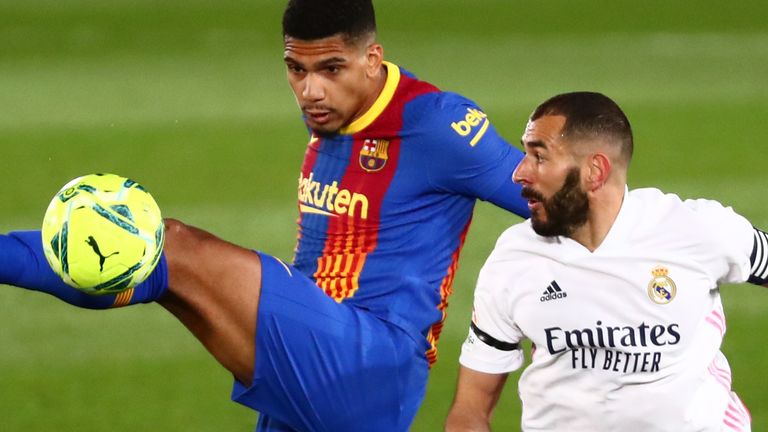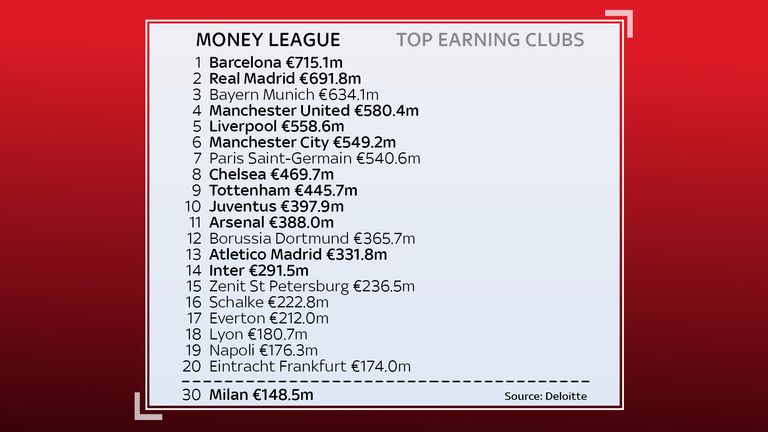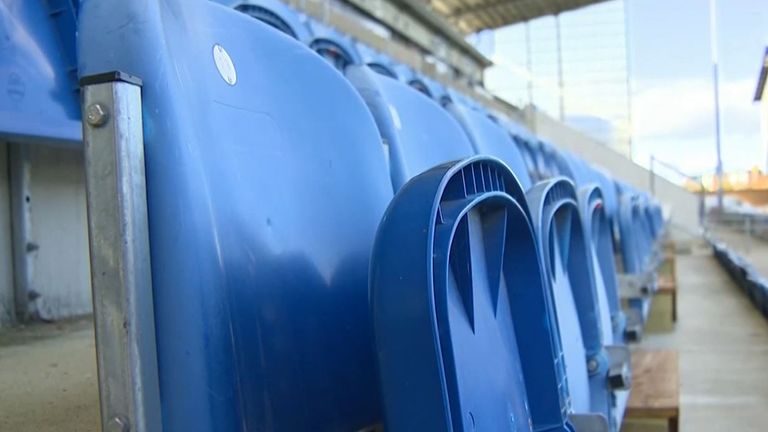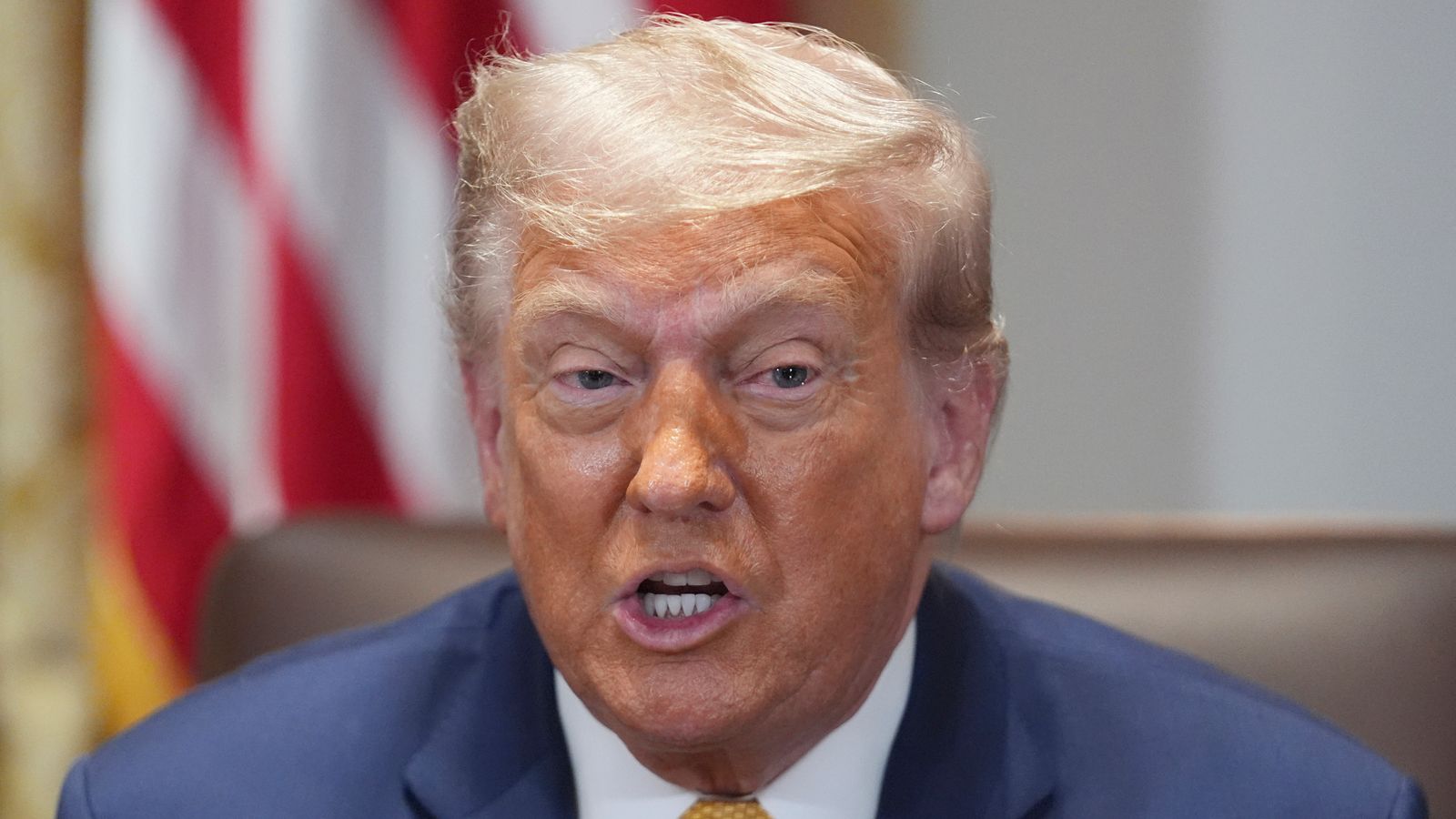The 12 clubs that initially agreed to form a breakaway European super league are already among the richest and most prestigious in the world.
A number of them have come under the control of foreign owners in recent years and some are saddled with huge debt piles – while the coronavirus pandemic has had a massive impact on their finances.
REVENUES
Between them, the dozen clubs earned nearly €5.6bn (£4.8bn) in revenues in the 2019/20 season, according to data compiled by Deloitte for its annual football money league analysis.
Top earner was Barcelona on €715.1m followed by Real Madrid on €691.8m.
The highest ranked British club was Manchester United with €580m in revenues while Milan, in lowly 30th position, scraped by on €148.5m
In fact, the super league numbers eight out of the top ten earners in the money league – with only third-placed Bayern Munich and seventh-placed Paris Saint-Germain not part of the breakaway.
COVID-19
These are huge sums yet they represent a calamitous year for the finances of Europe’s elite sides as they have been forced to play behind closed doors due to pandemic restrictions and pay rebates to broadcasters over interrupted schedules.
And with many of those clubs’ costs – on players’ wages or debt repayments say – still having to be paid out, profits have in some cases been wiped out.
The combined revenues of the super league 12 in 2019/20 were in fact €834m, or 13%, lower than in the previous year, when they totalled €6.4bn (£5.5bn).
Deloittte estimates that over the course of 2019/20 and 2020/21, the top 20 earning clubs will have missed out on revenue totalling more than €2bn as a result of the pandemic.
In 2019/20, Manchester United saw the biggest decline in revenue, with a fall of €131.m, followed by Barcelona, which saw a fall of €125.7m.
Manchester United reported a loss of £23m for the year to the end of June while Barcelona was in the red to the tune of €97m and Real Madrid only just made a profit – of €330,000.
Not all of the 12 have yet reported financial results for the year covering the 2019/20 season though among English clubs, Spurs swung to a loss of £63.9m and Arsenal were in the red to the tune of £47.8m. Chelsea made a profit of £36.4m thanks to the sale of players.
Deloitte’s money league report noted that the full impact of the pandemic may not become clear to years to come with the uncertainty “forcing existing and potential broadcast and commercial partners to consider the amount they are willing able to invest in sport”.
WHO OWNS THEM?
The 12 clubs all have illustrious histories going back more than a century though in some cases the owners have a relatively recent association.
Manchester United, whose history goes back to the foundation of Newton Heath in 1878, has been majority controlled by the American Glazer family since 2005, though shares in the club are also traded on the New York stock exchange.
Arsenal, whose origins date back to 1886, is owned by American billionaire and sports entrepreneur Stan Kroenke – who bought out Russian rival Alisher Usmanov in 2018 to take full control – while Chelsea, formed in 1905, has belonged to Russian billionaire Roman Abramovich since 2003.
Liverpool, founded in 1892, has been owned since 2010 by America’s Fenway Sports Group, which also owns the Boston Red Sox major league baseball team.
Manchester City, whose origins date back to 1880, was taken over in 2008 by Abu Dhabi’s Sheikh Mansour bin Zayed Al Nahyan while Tottenham has been controlled by billionaire Joe Lewis and chairman Daniel Levy since 2003.
Real Madrid, founded in 1902, and Barcelona, dating back to 1899, are controlled by their fans through membership schemes.
Atletico Madrid, dating back to 1903, is majority owned by Spanish sports executive Miguel Angel Gil Marin with Israeli billionaire Idan Ofer holding a big stake too.
Juventus, listed on the Milan stock exchange, is controlled by the Agnelli family behind the Fiat motor group. Its history dates back to 1897.
Milan, founded in 1899, and once owned by colourful former Italian prime minister and media tycoon Silvio Berlusconi, has been controlled by US hedge fund Elliott Management since 2018.
Its local rival Inter, formed in 1908, has been majority controlled by China’s Suning since 2016.
DEBTS
Football clubs including some involved in the super league have piled up debts totalling hundreds of millions of pounds.
Figures are not available for all of them and them and the picture is complicated by the fact that some have used that money to invest in infrastructure – such as Tottenham’s new stadium – and others have so-called “soft loan” arrangements with their owners.
Yet it is clear that for many the pandemic has had a stark impact.
Barcelona’s net debt more than doubled to €488m in the year to last June while for Real Madrid, the figure was €354.3m.
Juventus’s net debt was €357.8m while for Milan it was €103.9m
Latest figures for Manchester United show its debt pile at £455.5m while Tottenham had net debt of £604.6m and Arsenal’s net debt more than doubled to £108.2m.











